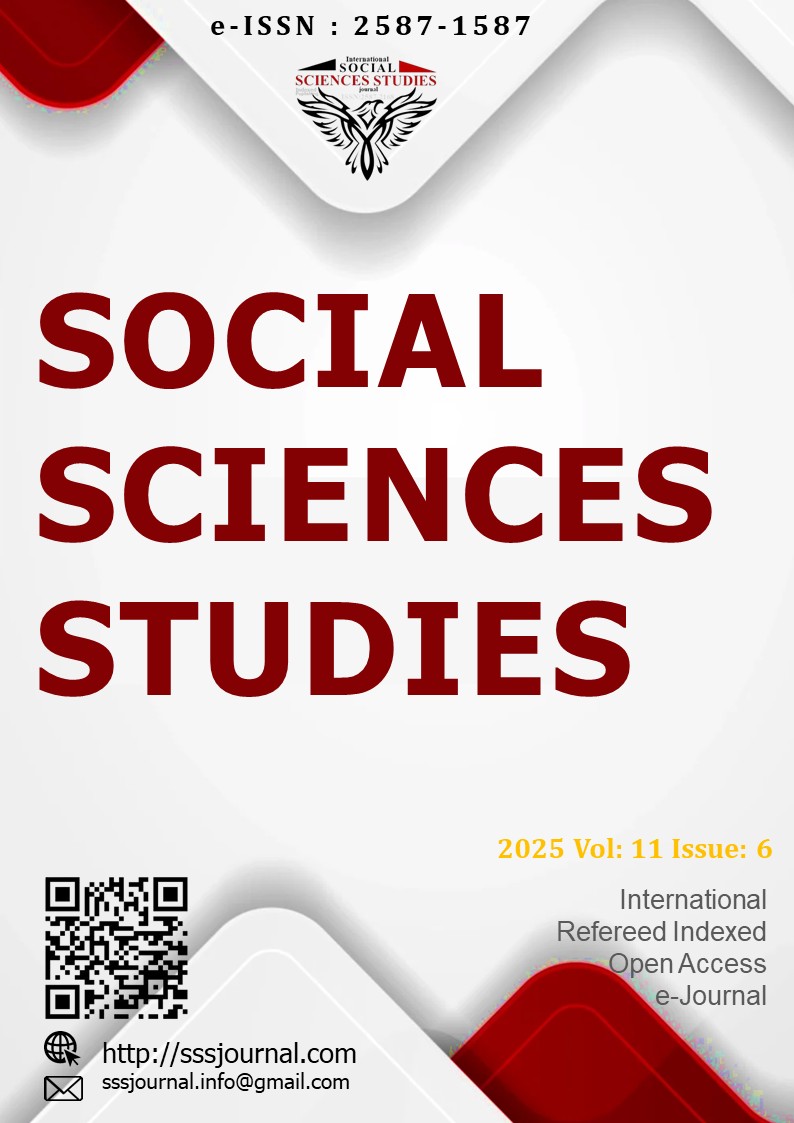Author :
Abstract
Toplumsal cinsiyet hakkında yapılan çalışmalar ve tartışmalar; toplumsal, kültürel ve politik açıdan disiplinlerarası farklı bakış açıları geliştirilerek son yıllarda daha fazla önem kazanarak artış göstermiştir. Biyolojik cinsiyet ve toplumsal cinsiyet arasındaki fark günümüzdeki tartışmaların merkezinde yer alırken cinsiyetin biyolojik olmaktan ziyede, sosyal olarak inşa edilen bir kimlik olduğu anlayışı yaygın hale gelmiştir. Toplumsal cinsiyet rolleri; kadın ve erkeğin belirli davranışlar, tutumlar ve görevler üstlenmeleri sebebiyle toplumsal olarak nasıl şekillendiği üzerine odaklanır. Bu bağlamda cinsiyetin toplumsal bir yapı olarak nasıl şekillendiği, normların nasıl oluşturulduğu ve bu normların kadın ve erkek yaşamları üzerinde nasıl bir etki bıraktığı değinilmiştir. Bu çalışmada toplumsal cinsiyet rolleri inşasında etkili olan faktörlerden ailenin kadın ve erkek rolleri üzerine etkisi ele almak amaçlanmaktadır. Bu amaçla ailenin bireyler üzerinde ilk sosyal deneyimleri yaşadığı, toplumsal normların ve değerlerin ilk kez öğrenildiği önemli bir kurum olması bakımından aile içi kadın ve erkek rolleri bağlamında ortaya konulacaktır. Bu kurumun yapısı ve işleyişi, toplumun kültürel, ekonomik ve politik yapılarıyla doğrudan ilişkili olduğu vurgulanmaktadır. Bu bağlamda ataerkil aile içi rollerinin kadın ve erkek ilişkileri, ev içi alandaki rol paylaşımı, cinsiyet rol kalıpları, toplumsal cinsiyet rolleri bağlamında değerlendirilmesi yapılmıştır. Bu bağlamda, ataerkil kültürün etkisiyle toplum kadınlardan itaatkâr, fedakâr ve duygusal olmalarını; erkeklerden ise güçlü, mantıklı ve otoriter olmalarını beklemektedir. Ataerkil aile yapısı, tarihsel olarak hegemonik erkek egemenliğine dayanan ve özel alanda kadınlar üzerinde hakimiyet kuran yapısı ile hem kadın hem erkek rolleri üzerindeki yönlerini de anlamayı sağlamaktadır.
Keywords
Abstract
Studies and debates on gender have gained more importance in recent years by developing different interdisciplinary perspectives on social, cultural and political aspects. While the difference between biological sex and gender is at the centre of current debates, the understanding that gender is a socially constructed identity rather than a biological one has become widespread. Gender roles focus on how men and women are socially shaped as they assume certain behaviours, attitudes and duties. In this context, how gender is shaped as a social structure, how norms are created and how these norms have an effect on the lives of women and men are discussed. This study, it is purpose to address the effect of family, one of the factors that are effective in the construction of gender roles, on the roles of women and men. These purpose, the family as an institution where individuals have their first social experiences and where social norms and values are learnt the first time will be presented in this context of male and female roles within the family. It is emphasized sed that the structure and functioning of this institution are directly related to the cultural, economic and political structures of the society. In this context, patriarchal family roles were evaluated in the context of male-female relationships, role sharing in the domestic sphere, gender role patterns and gender roles. In this context, under influence of patriarchal culture, society expects women to be submissive, sacrificial and emotional, and men to be strong, logical and authoritative. The patriarchal family structure, which is historically based on hegemonic male dominance and dominates women in the private sphere, provides an understanding of the aspects of both male and female roles. The patriarchal family structure, which is historically based on hegemonic male dominance and dominates women in the private sphere, also enables us to understand the aspects that compromise both male and female roles.In this context, under the influence of patriarchal culture, society expects women to be submissive, sacrificial and emotional, and men to be strong, logical and authoritative. The patriarchal family structure, historically based on hegemonic male domination and dominance over women in the private sphere, enables us to understand its aspects on both male and female roles.





